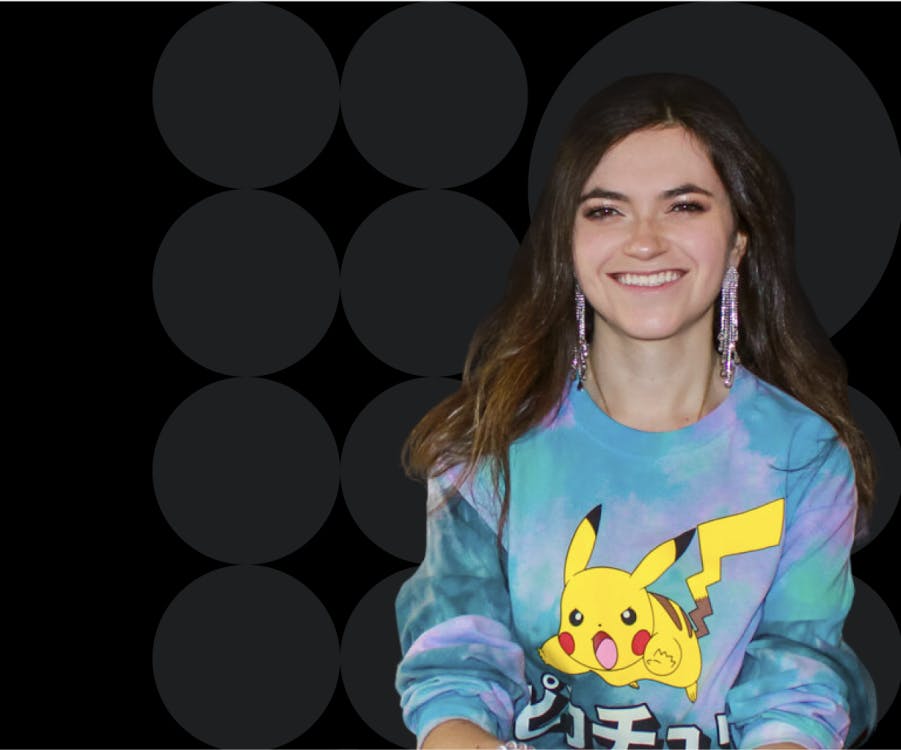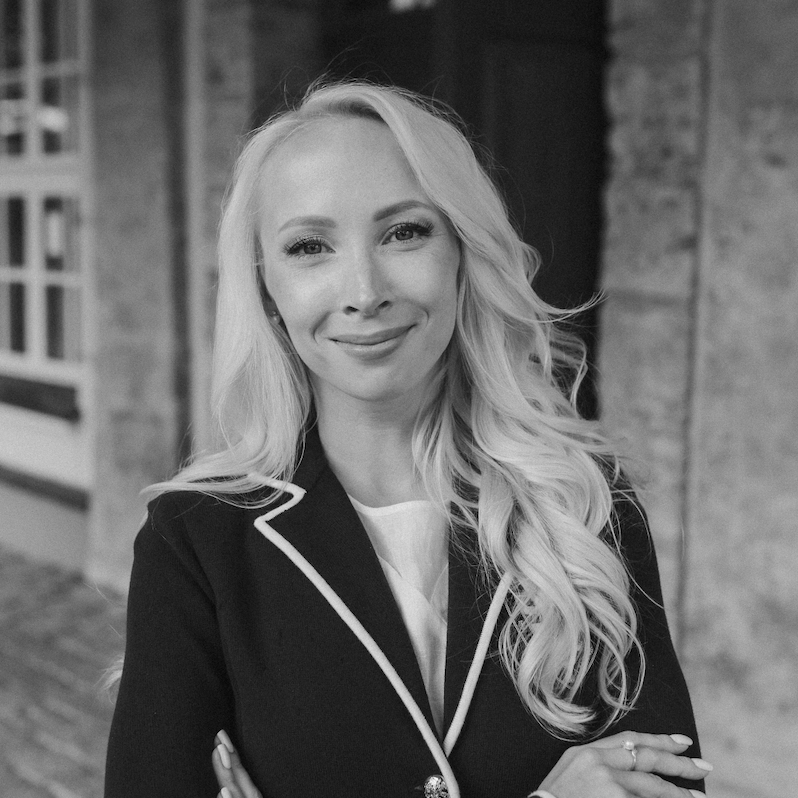Ali Stone has cemented her place as a leader in modern music production. She grew up in Colombia and eventually moved to Los Angeles, where she writes, produces, mixes, and masters, both for herself and other artists, including Mary J. Blige, Danna Paola, and Natti Natasha. In 2021, Ali received a GRAMMY nomination as a producer for the Chilean singer Cami’s album “Monstruo”. She has performed as an opener for Justin Bieber and headlined the Electric Daisy Carnival in Mexico City. Known as an electronic music DJ and performer, she is also an accomplished musician on keyboards, flute, guitar, and anything else she can get her hands on. Dave Pensado dubbed Ali “the 2020’s one-man band.” Sonarworks was fortunate to catch up with Ali and speak with her about her career and musical journey. The following are some highlights from our interview.
Tell us about how you started your career in music?
Yeah, I started years ago as a guitar player when I was like 13, playing guitar for artists in Colombia, recording guitars and everything. Years later, when I lived in Paris, I started to like electronic music, and I saw people making these remixes, which led me into production. Then, in 2013, I won a competition to make a song for the Disney movie “Monsters University,” and that kick-started my career. Axwell and Sebastian Ingrosso (Swedish House Mafia) had a public remix contest. I was, like, ‘okay, I have three days to produce something!’ I didn’t expect to win—I was in finance because I went to business school! That changed everything because from there, people started to book me to make remixes, even asking me if I was a DJ. I was like “Oh my god, I need to become a DJ!”
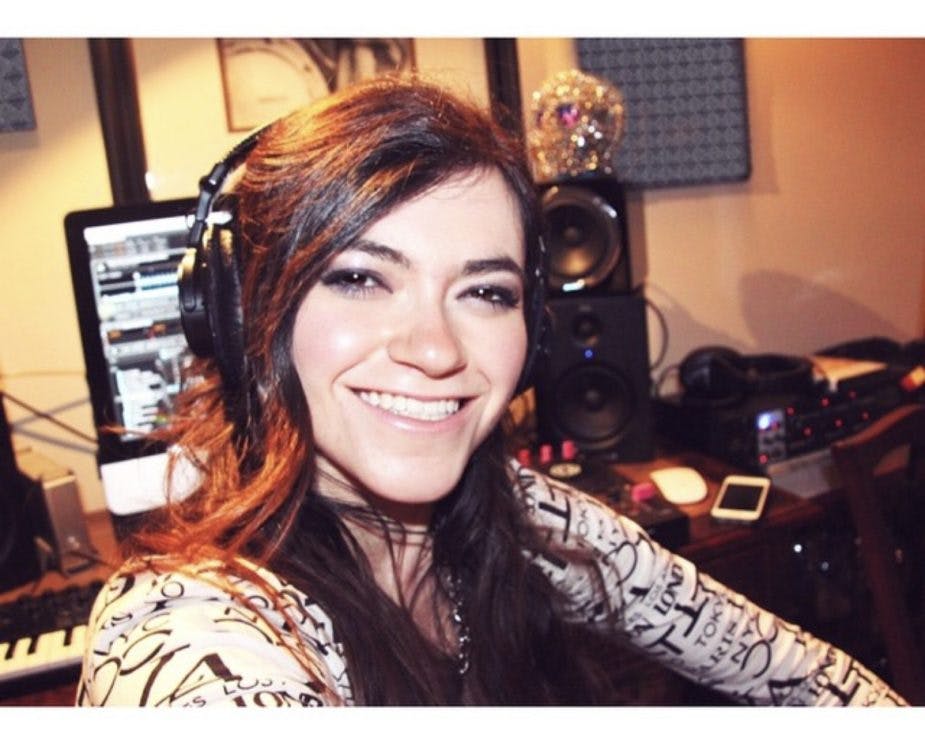
Did you go to university for music, or have you learned everything about music on your own?
When I was 4, I started with classical piano lessons. Then, when I was 5, I began to play the flute, and when I was 7, I went with guitar and started to study blues, rock, and metal. I was getting this extensive formation in music, especially with instruments and reading music, and being able to identify jazz sounds. But the production part was sort of like self-taught on my own. I was in business school, so it was my way of de-stressing from school. In my free time, I would watch tutorials on “What is compression?” and “How do you apply filters.” I got some books to read just to learn how to properly mix and master because I was doing everything on my own.
I feel like I’m always learning. Music is a process of learning new ways of producing, mixing, and recording. On an album that I recently produced with Sebastian Krys, I saw that he had this [McDSP] ML4000 plugin, and when I heard it in action, I was like ’Wow!’ I learned a new way of managing my mix bus, so now I’m doing something that I wasn’t able to do before in my songs.
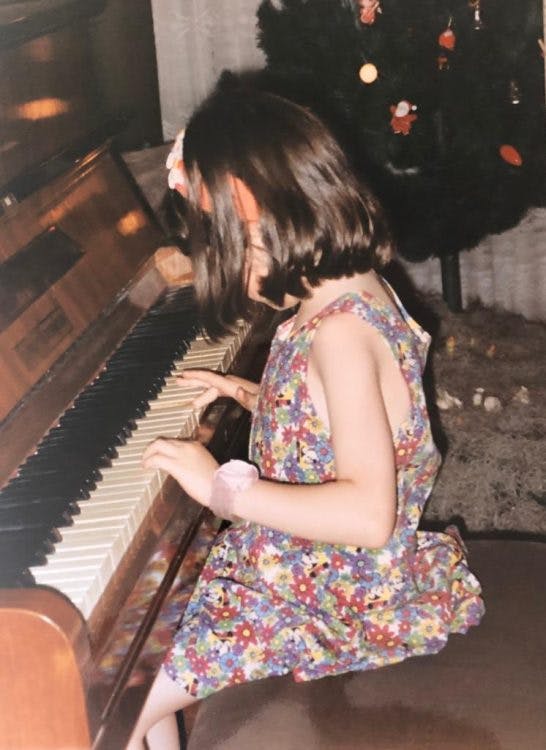
What were the first studio tools that you bought, and what currently are the most and least expensive tools you use?
The first one was Pro Tools 5. When I started my actual production career, I added the M Audio speakers and the Focusrite Liquid Saffire 56 audio interface. Now, the most expensive of what I have here can’t be seen—plugins. If I go out of my studio I won’t have my instruments, so I need my plugins because I can do almost anything in the box. The cheapest one that I love is the CamelCrusher distortion plugin. It’s free [laughs].
Of all the projects you’ve worked on, which one would you say is your favorite?
Hmm, it’s hard because I love all of them. It’s a different kind of love for each project. I feel like it’s probably the album that came out for Francisca Valenzuela, a Chilean artist. I co-produced the whole 11-song album with Sebastian Krys, and I feel super proud about that one because it’s very eclectic. It has rock, cumbia, bolero, and others, and it’s also kind of different from what’s out in Latin music right now. We worked on the album a year ago and it just came out, but it still sounds new and it still feels fresh.
We also have a project that got nominated for a GRAMMY with Cami. She’s from Chile and that was a super cool project as well because it was very experimental and I was like, ‘either people will love it or hate this’ because it was mixing folkloric stuff with very, very modern sounds. It’s like a scary combination that maybe people find weird, but it’s there to make a statement. The album is called Monstruo, and that specific song is called “Pena Negra”; it ended up getting nominated for a GRAMMY. So yeah, that was like a nice milestone in my career.
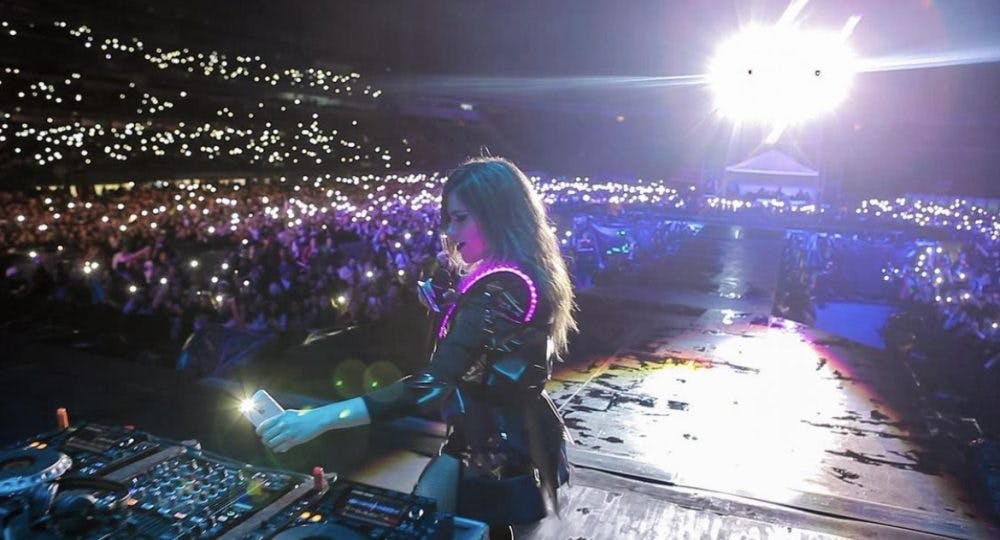
Where do you find inspiration for your work?
I feel like I find inspiration in everything, especially since I work not only on my music, but I also write songs and produce for others. There are so many things that can inspire you—like there was a song where I was very inspired by food, so I decided to incorporate a lot of my kitchen elements into the production. I was recording cutting limes, then the shakers were the salt and pepper, and then moving my coffee was like semi percussion, twirling your coffee there. That song is called “Crudo”, it means “raw” in Spanish.
Comparing 17 years ago when you started to now, what would you say is the biggest change in the industry?
I feel like education is super available to everybody, and with the internet, everything has exploded. Also, I think technology has become more affordable—it used to be more exclusive and prices were exorbitant.
I also feel people are now realizing that more women have to be involved in this [industry] and are more inviting about it.
Ali Stone
I’ve noticed that change since I started, and people are kind of appreciating more that “oh yeah you do everything.” When I started people told me not to say I’m doing everything because people don’t want to know.
What would be your dream project or artist to work with?
Well, an artist from my country I’ve always loved—Shakira. Since I was little I would listen to her music, so it would be amazing to be able to work with her, to listen to her. I also love Taylor Swift. Her songwriting is super cool, especially her latest albums which were kind of more folky. I feel like those two artists can be super different but they each have their signature so they can do whatever genre they want and still sound like themselves.
Can you tell us your favorite album or song?
I think the Beatles and Abba are my 2 choices. I would say “Let it Be” by the Beatles because I first listened to it when I was little. I had no idea what it said because I didn’t know English, but I felt the emotion in the melodies. I understood the song even though I didn’t know what it said. From Abba, I really like “Dancing Queen,” and even “Money, Money, Money.” I feel like those melodies are timeless, as well. My dad was the Beatles, my mom Abba.
Do you have a playlist of reference tracks for your productions?
I love all of the stuff from S Club 7 that was made by Stargate. It sounds amazing—when something is executed well, it can sound modern even if it was made 20 years ago. I also love Skrillex and Madeon. They are always like a big reference in terms of sound because everything sounds super pristine and clear, but also loud. I like especially for drums and everything, to be super loud and right there in front of you.
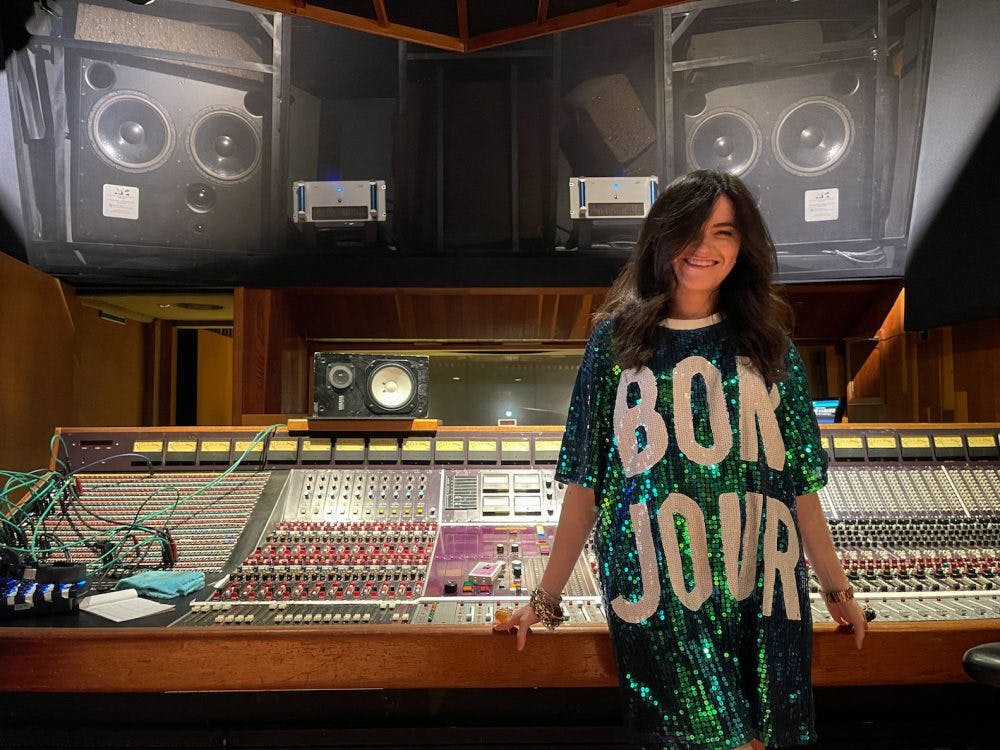
You have a great studio, but how do you deal with listeners who you know have different kinds of speakers and headphones?
Well, I’ve always been super cautious and I test how my songs translate everywhere. I started back in Colombia with my small speakers, so I would burn CDs to bring them to my car and listen. I don’t have a car here in L.A., but SoundID Reference has translation presets like mix cubes and iPhone speakers. I check to make sure that the kick has the top-end that is still audible in the speakers that have less range. Just make sure that you invest a lot of time to ensure that your mix translates well!
Even if there’s not a nice setup where I’m working, I can still mix with my headphones and SoundID Reference and everything will sound great.
Ali Stone
Your career has been quite colorful so far. What would you recommend to someone who’s just starting?
Practice! It’s the most important thing because it’s like a never-ending career of learning. I feel like it’s an important thing to know you have to keep on practicing. Also, patience because it takes a lot of time. I’ve been playing music since I was 4, so like 25 years, and I’m still working. Be persistent, have patience, discipline, and keep practicing.
And of course the passion! I feel like that’s what really drives you to learn, like, to stay up until like 3:00 AM or 4:00 AM working, but not feeling that it’s work. And lastly, don’t compare yourself.
It’s nice to have references and idols and see what other people are doing, but don’t use that to be hard on yourself because, in the end, everybody has their own journey.
Ali Stone
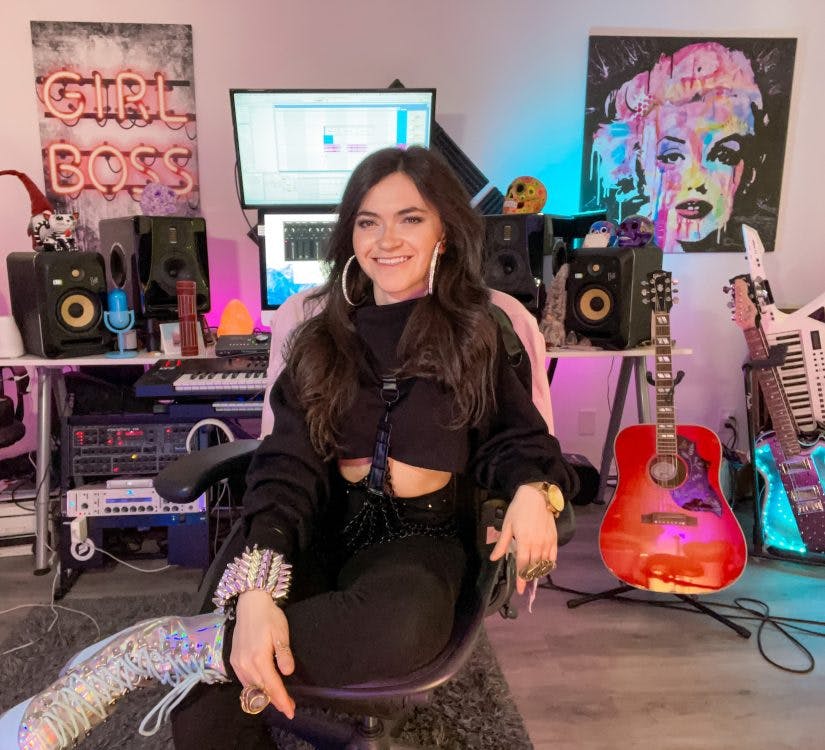
And when it comes to mixing and production, what is your number one, favorite mixing and production tip?
I would say the main tip is, like, ‘it’s the ear, not the gear.’ That’s my main thing.
In the end, you have to train your ears because you may have the most expensive microphone and everything, but if you don’t pay attention to how it’s sounding, it doesn’t matter!
Ali Stone
You can learn more about Ali by visiting her website at https://alistonemusic.com/ following her on Instagram or searching her out on your favorite music streaming platform.
